TEF and students: Survey results
The TEF is currently on the lips of MPs, journalists and university staff across the UK – basically, everyone except those who it will affect most: Students!
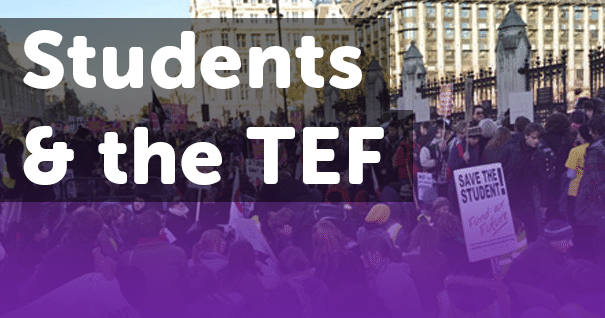 We recently surveyed 2,038 UK students to find out how much they knew about the Teaching Excellence Framework – a controversial new government scheme that will grade university performance and raise tuition fees annually according to how they ‘score’.
We recently surveyed 2,038 UK students to find out how much they knew about the Teaching Excellence Framework – a controversial new government scheme that will grade university performance and raise tuition fees annually according to how they ‘score’.
We decided to run this survey when it became clear from readers’ reactions to our TEF-related posts that a vast majority were completely uninformed about the scheme and the decisions that were currently being made in parliament about their education.
What first seemed like a lack of interest was soon revealed to be simply a total lack of awareness: Students weren’t interested in reading about the TEF because they had no idea what it was, what it meant, or that it had anything to do with them.
Do students know what the TEF is?
Have you heard of the TEF?
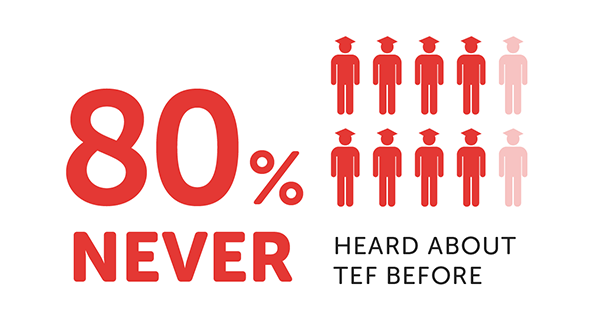
Do you know what the TEF is?
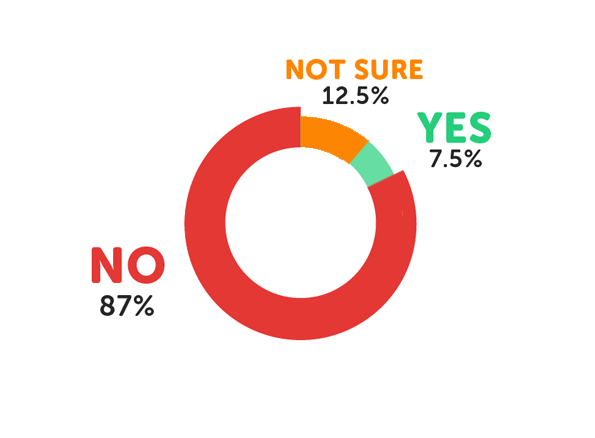 According to our survey, a whopping 80% of respondents told us they had never even heard of the TEF before.
According to our survey, a whopping 80% of respondents told us they had never even heard of the TEF before.
Not only this, but a meagre 7.5% claimed they actually knew what the TEF was, whilst 12.5% said they were unsure and a shocking 87% said they had no idea.
When we asked respondents to describe in a few words what they did know about the TEF, as expected the vast majority either left this section blank or included a comment along the lines of ‘I know absolutely nothing’.
A mere handful of comments seemed to grasp what the scheme actually entailed. A common misconception seemed to be that it was to do with training or rewarding teaching:
– I assume about rewarding teachers, but honestly I have no idea other than that.
– Guidance on how to teach effectively?
– A guide of good ways to teach and what to look for in answers.
– I think it's where the teachers get recognised for their work.
– Teaching Excellence Network frame is a certificate for candidate who are wish to be teachers.
– I hadn't heard of it before taking this survey. I would be interested to know more about it, especially if it effects my own lecturers.
– Framework for monitoring and assessing quality of teaching. Recognising outstanding professionals?
TEF and tuition fees
 Once the survey had explained what the TEF is and how universities were to be graded - using dropout rates, graduate employment figures, and scores from the National Student Survey (NSS) - only 24% of respondents felt it would be good news for universities and students.
Once the survey had explained what the TEF is and how universities were to be graded - using dropout rates, graduate employment figures, and scores from the National Student Survey (NSS) - only 24% of respondents felt it would be good news for universities and students.
We followed this up by asking students if they were aware of the link between TEF and tuition fees before taking the survey.
Before reading this, were you aware of the link between the TEF and rising tuition fees?
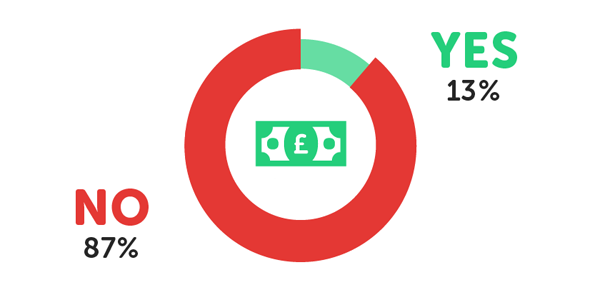
This shows that a substantial number of those who already knew what the TEF, were unaware that the scheme was being used to justify raising tuition fees.
Some even said they thought TEF was a good idea until finding out it's connection to tuition fees:
– As much as a ranking scale is a good idea, the idea of fees increasing according to this ranking is totally elitist and unfair. Also, increasing fees for current students is despicable!
– I agreed with what TEF were doing until I saw that this would increase uni fees -NO! they're already high enough
And many said universities were already overcharging, and suggested the TEF be used as a way to get underperforming unis to pull their socks up so students get their £9,000-per-year's worth:
– This should be a normal practice anyway without giving universities a reason to increase fees! Students pay enough for what should be high quality teaching in the first place.
– Universities should be offering a gold standard of education for the price they currently charge, TEF should benefit the students by letting us know we're going to receive that. What it shouldn't be doing is giving universities a chance to extort their already financially vulnerable students.
– The problem isn't top ranked uni's charging for the education, it's lower ranked universities abusing the system, and charging the same as the top universities but offering very little return. They are profiting off the graduates-only culture of the UK job market.
– If we do increase the tuition fees, I think a report on university spending should be done that is available to the public so everyone can see what funding goes into and why we pay so much.
The lack of awareness students seem to have about TEF comes as a surprise following high-profile action by student unions around the UK, including an NUS-led demo in November. Despite these campaigns, it seems the word still isn’t reaching those who the TEF will affect most.
Would you take part in any of the following actions against the TEF?
When we then asked respondents if they'd take and action to prevent the TEF from moving forward, only 25% said they wouldn't.
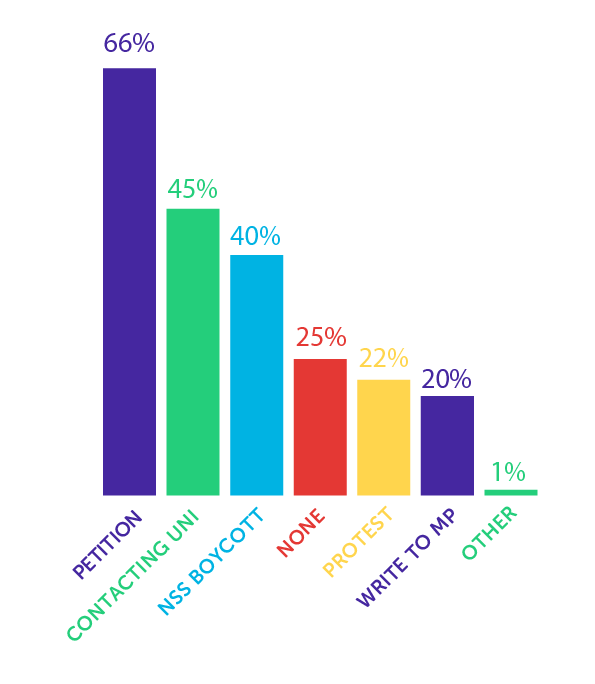
An online petition seems to be the preferred mode of action to fight the TEF going forward (66%), but unfortunately this looks set to be the least effective at this stage.
If an online petition reaches 100,000 signatures, the issue must be discussed in parliament, but the Higher Education Bill (which includes the TEF) has already made it through commons and is now being debated in the House of Lords, making this method less likely to produce results.
However, it's encouraging to see that as much as 45% said they'd try to convince their university not to sign up to TEF, which is voluntary.
40% said they'd consider boycotting the National Student Survey - a student satisfaction survey which the TEF heavily relies on when rewarding universities, but which many believe is grossly insufficient for this purpose - which is due to open in January 2017.
STS on TEF
Our Student Finance expert, Jake, says:
These figures clearly show there’s been a shocking lack of communication from the government and universities when it comes to informing students about what the TEF is and how it’s likely to affect them.
Students are being kept in the dark, and I think the excuse currently given is that nothing is set in stone – but by the time it is, it’ll be too late to do anything about it and students will have to pay the consequences (and this also hasn’t stopped unis from already advertising higher fees).
The TEF could be a great tool if it was used appropriately, but from what I can see, it’s being abused as an excuse to increase tuition fees, and that’s appalling.
The rating system the government is proposing is seriously flawed and is just another step towards the commercialisation of university education in this country.”
Contact your union to find out what you can do to show your opposition to TEF at your university, and keep an eye on our Facebook page for the latest updates.








